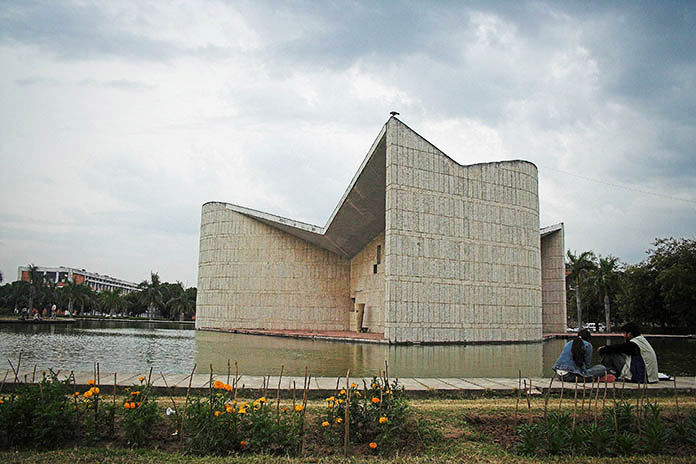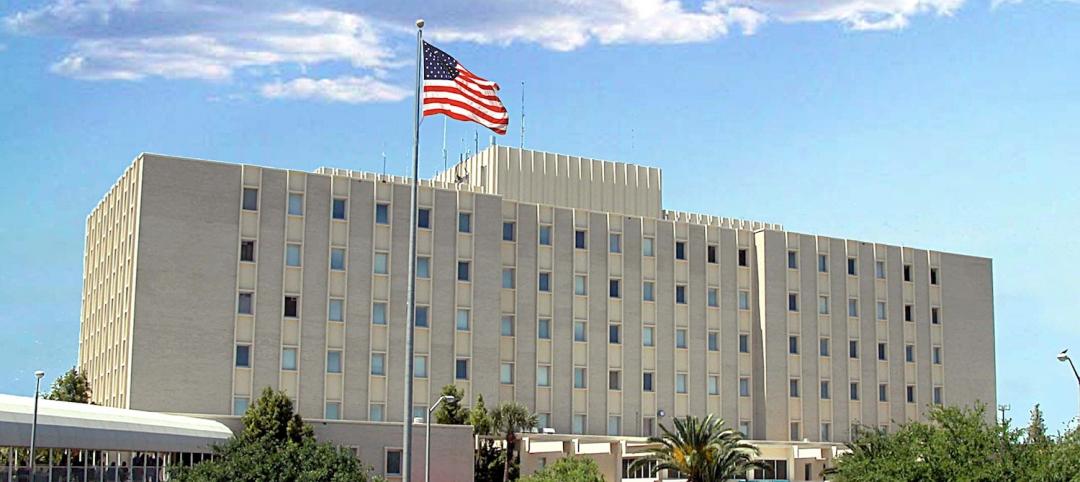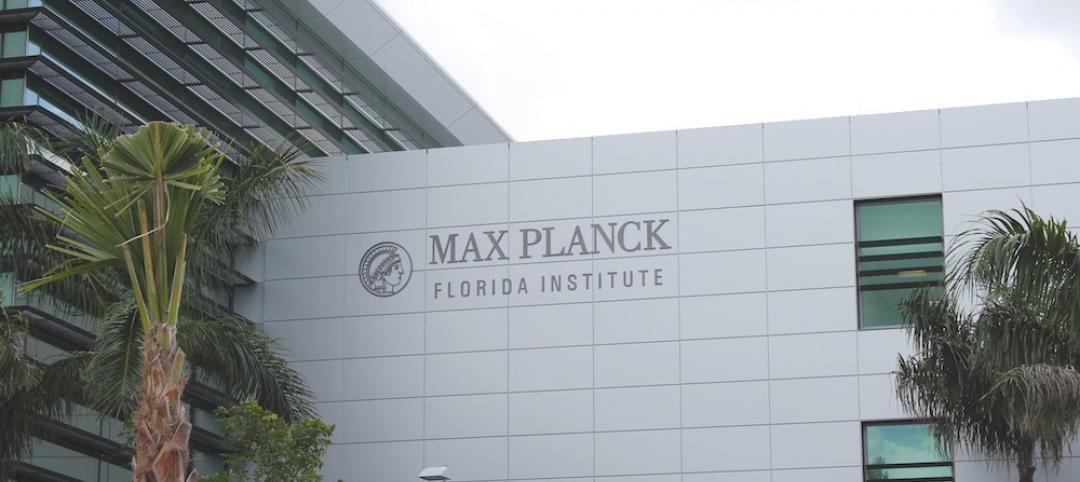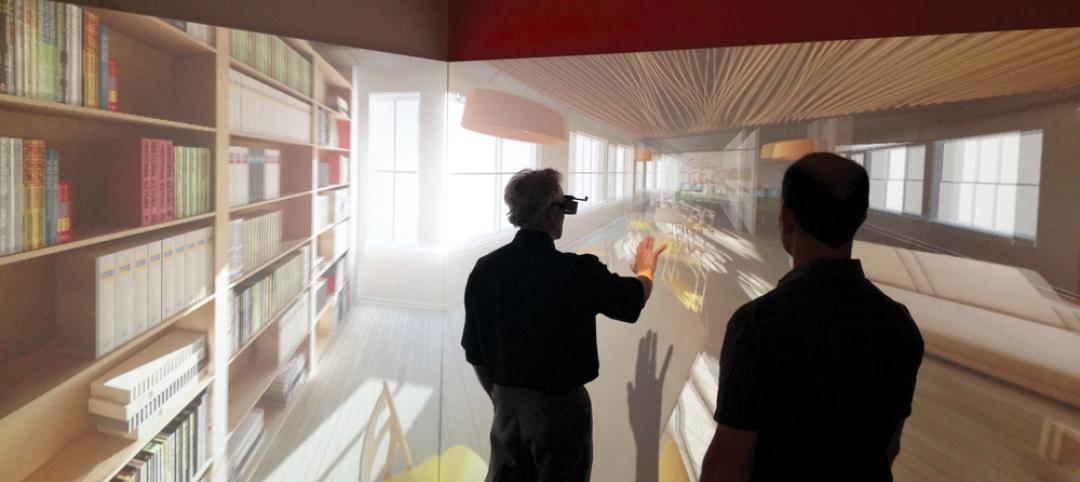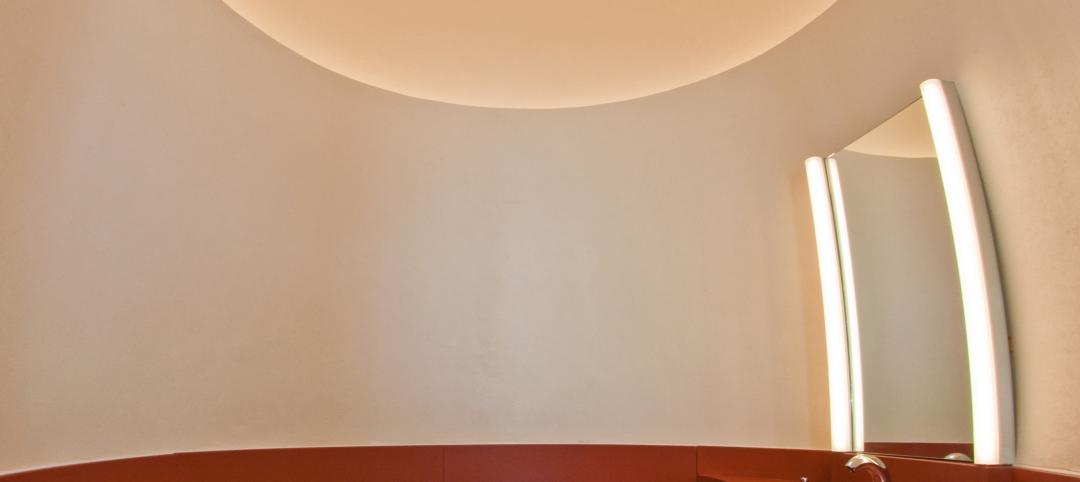The Getty Foundation announced a second series of grants for exemplary 20th century buildings as part of its Keeping It Modern initiative.
The latest grants for 14 projects in eight countries extend the program’s reach to new regions, ranging from Brazil to India. Each project is a model that reinforces the initiative’s focus on the conservation of modern architecture around the world.
The 14 projects selected to receive funding this year are:
• Frank Lloyd Wright’s Unity Temple
• Walter Gropius’ residence The Gropius House
• Erich Mendelsohn’s Einstein Tower
• Charles Rennie Mackintosh’s Hill House
• Pierre Jeanneret’s Gandhi Bhawan (Gandhi Center)
• João Batista Vilanova Artigas and Carlos Cascaldi’s School of Architecture and Urbanism at the University of São Paulo (FAUUSP)
• Marcel Breuer’s Saint John’s Abbey and University Church
• Gerrit Rietveld’s Schröder House
• Michel de Klerk’s Het Schip
• George Nakashima’s Arts Building and Cloister
• Giancarlo de Carlo "Collegi" buildings at the Università degli Studi di Urbino
• Paul Rudolph’s Jewett Arts Center at Wellesley College
• Jorge Ferreira’s Arthur Neiva Pavilion
• James Strutt’s residence The Strutt House
“Last year’s launch of Keeping It Modern emphasized that modern architecture is a defining artistic form of the 20th century at considerable risk, often due to the cutting-edge building materials that characterized the movement,” says Deborah Marrow, director of the Getty Foundation. “This new round of Keeping It Modern grants includes some of the finest examples of modern architecture in the world. The grant projects address challenges for the field of architectural conservation and will have impact far beyond the individual buildings to be conserved.”
The new Keeping It Modern grants focus on a number of pressing concerns within the conservation community, including the continued need for conservation planning for 20th century architecture, the call for models that demonstrate how to integrate conservation planning more comprehensively into the general stewardship of modernist buildings, and the lack of understanding about the aging and proper treatment of architectural concrete. The latter issue is being addressed in many of these projects.
“The use of concrete, while visually striking and radical for its time, has created a unique set of challenges for conserving some of the world’s most important modernist structures,” says Antoine Wilmering, senior program officer at the Getty Foundation. “Our new grants offer an excellent opportunity to advance research and conservation practices for this material. The accumulated knowledge that will result from the projects will be of tremendous benefit to the field.”
While the focus of Keeping It Modern is on conservation planning and research, exceptional projects that have the potential to serve as significant models for the preservation field may also be considered for implementation support. This year the Foundation is announcing the first Keeping It Modern grant at the implementation level to support the conservation of Frank Lloyd Wright’s celebrated Unity Temple in Oak Park, Illinois.
In the first year of Keeping It Modern, applications were by invitation only so that the Getty Foundation could demonstrate the type of project the initiative would support. The second year was an open call for proposals, and many high-quality projects were submitted for consideration. The projects were evaluated by an expert advisory committee that made recommendations based on a number of factors, including architectural significance, the strength of the work plan, international diversity, the potential to make a meaningful contribution to the field of conservation, and to serve as a model for conservation practice.
Keeping It Modern is part of the Getty’s strong overall commitment to modern architecture, as demonstrated by the Getty Conservation Institute’s Conserving Modern Architecture Initiative (CMAI), the extensive and growing architectural collections of the Getty Research Institute, and the 2013 Pacific Standard Time Presents: Modern Architecture initiative which focused on Los Angeles’ modern heritage. With these combined efforts, the Getty continues to advance the understanding and preservation of 20th century modern architecture.
Deadlines and criteria for the next round of Keeping It Modern applications will soon be announced on the Getty Foundation website atwww.getty.edu/foundation.
Related Stories
| Sep 15, 2014
Gen-Y-focused multifamily development under way in L.A.
The new urban residential community at 1001 S. Olive Street will offer open floor plans consisting of 64 studios, 109 one bedroom units, and 28 two-bedroom units, ranging in size from approximately 500 sq ft to 1,100 sq ft.
| Sep 14, 2014
Ranked: Top Veterans Administration sector AEC firms [2014 Giants 300 Report]
CannonDesign, Clark Group, and URS top BD+C's rankings of the nation's largest Veterans Administration building sector design and construction firms, as reported in the 2014 Giants 300 Report.
Sponsored | | Sep 13, 2014
5 common questions leaders should never ask
Asking the right questions can help business leaders to anticipate changes, seize opportunities and move their firms in new directions. SPONSORED CONTENT
| Sep 13, 2014
Why CEOs shouldn’t be afraid to ask for outside help
An oven-overlooked factor in assessing the success of a leader, according to organizational development consultant Brook Manville, is his or her ability to go far outside the organization to get help in solving problems. SPONSORED CONTENT
Sponsored | | Sep 13, 2014
Right Way Plumbing finishes first at Max Planck Florida Institute
The Max Planck Florida Institute consists of a three-story, 100,000-sf scientific research facility with 30,000 feet of copper joined with Viega ProPress fittings.
| Sep 12, 2014
Total immersion: Has virtual reality's time finally come?
The emergence of low-cost VR technology means that anyone with a few hundred bucks and a decent workstation can get in the game. But, as our experts reveal, pulling off VR is not so simple.
| Sep 12, 2014
Will on-site parking remain king in the development world?
In spite of the trend away from multi-car residences, not much has changed with regard to parking spot allocations within apartment buildings and other multi-unit residential developments, writes GS&P's Doug Sharp.
| Sep 11, 2014
5 competing designs unveiled for Presidio Parklands in San Francisco
To turn the underdeveloped area by Chrissy Field into new public space, San Francisco's Presidio Trust unveiled the five designs by five teams they invited earlier this year.
| Sep 11, 2014
Cintas invites public to vote for 'America's best restroom'
For the 13th consecutive year, Cintas Corporation is back with its popular America’s Best Restroom Contest. A team of survey editors once again scanned the country for the most creative and clean public restrooms and produced a crop of nominees sure to please.
| Sep 10, 2014
Ranked: Top transit facility sector AEC firms [2014 Giants 300 Report]
Leo A Daly, URS, and Skanska head BD+C's rankings of the largest transit facility sector design and construction firms, based on the 2014 Giants 300 Report.


